
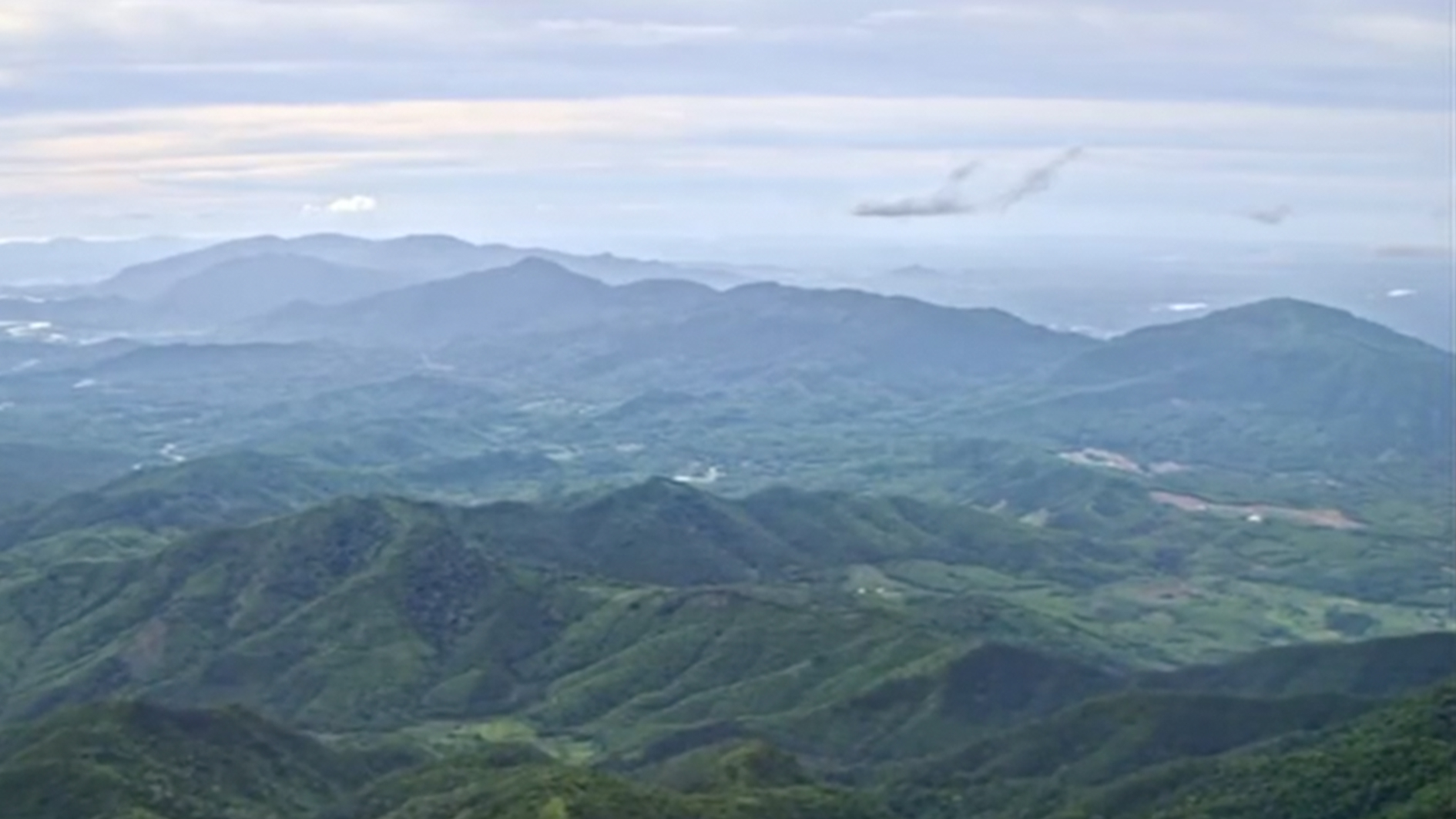
Aksu, on the edge of the Taklamakan Desert in China's northwestern Xinjiang region, used to get battered by sandstorms for nearly two months every year. But a greening project, which has seen more than 30 years of planting new forests, has changed all that. In recent years, the focus for Aksu has been on a green transformation, which finds the right balance between environmental protection and economic development.
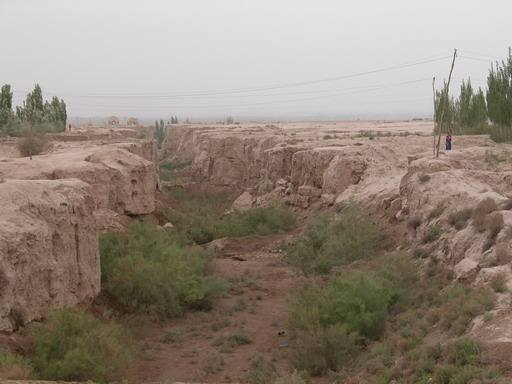
A partial "Kekeya" landscape in Aksu. /CGTN Photo
"Kekeya" means green gullies or cliffs in the Uygur language. It's also what people call an area in the northeastern suburbs of Aksu, where the sandstorms used to blow in from. But thanks to the Kekeya Green Project, that's now a thing of the past.
Mamat Imin Hamut, a forest ranger with the green project, said that he joined the project in 1987 with a total of 37 staff members. He thought it was impossible to plant trees at the beginning because of the amount of saline-alkaline land there. However, thanks to the country's trust and his family's support, he has persisted until now, he said.
Over the past 32 years, those forest rangers have persevered, and now Aksu has grown from desert in 1987 to encompass about 77,000 hectares of afforestation in 2017.
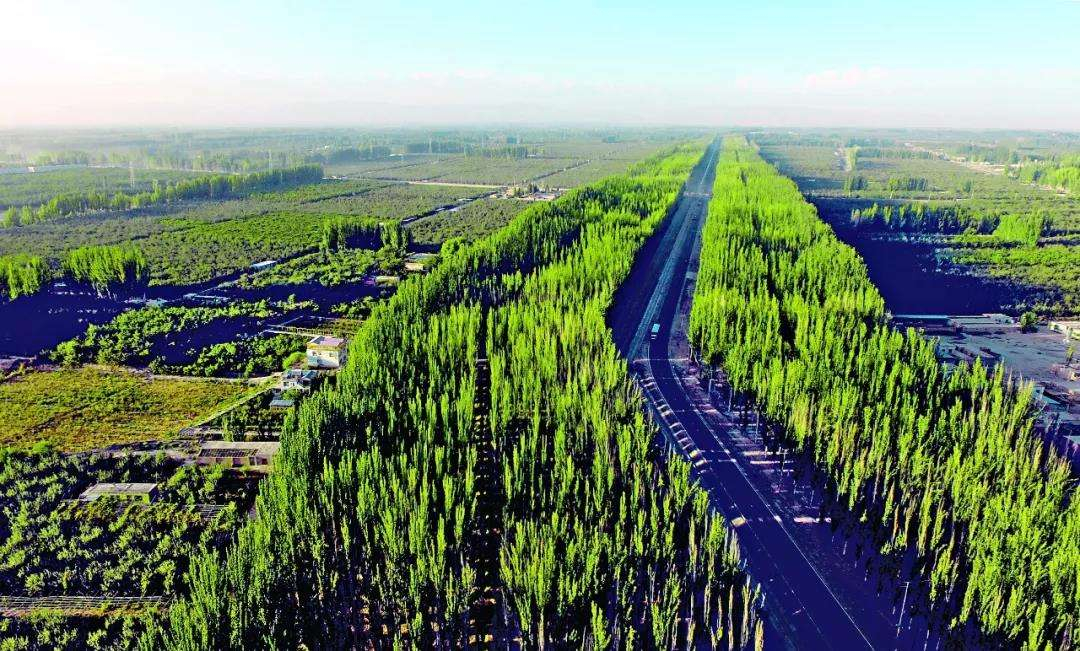
A current view of the Kekeya Green Project in Aksu. /CGTN Photo
Song Jianjiang, another member of the first batch of forest rangers, pointed out that much of the work is now mechanized thanks to improved technology in the area. For example, the pits where they plant trees are all dug by special tractors, and they use drip irrigation technology to water trees, which is more convenient than before.
Thanks to the project, Aksu has earned more than 20 honors, such as the National Landscape Garden City Award and China Living Environment Model Prize. Some visiting foreign journalists shared their positive views on the project.
Saeed Ahmad Al-Kuwari, a news editor at Qatar State News Agency, said greening such a large area for 30 years is a remarkable achievement, and he hopes China will continue to make progress in environmental protection.
Akram A.R. Abu Al Hannoud, director of the foreign affairs department at Al Bayan News in the United Arab Emirates, said he had found many aspects of China that he had not known before, and seen the efforts made by China in desert control and environmental protection.
However, Aksu's green development did not stop there. In recent years, it gradually established fruit plantations and a national wetland park, managing to seek a balance between environmental protection and economic development.
Wang Xiaoping, general manager of a local fruit plantation, said his company started in 2013 with dozens of hectares of orchards. The government helped build part of the plantation and offered subsidies for different projects, such as returning farmland to forests. Now, the company has about 520 hectares having apple varieties from different countries. The orchard helps support 65 local households.
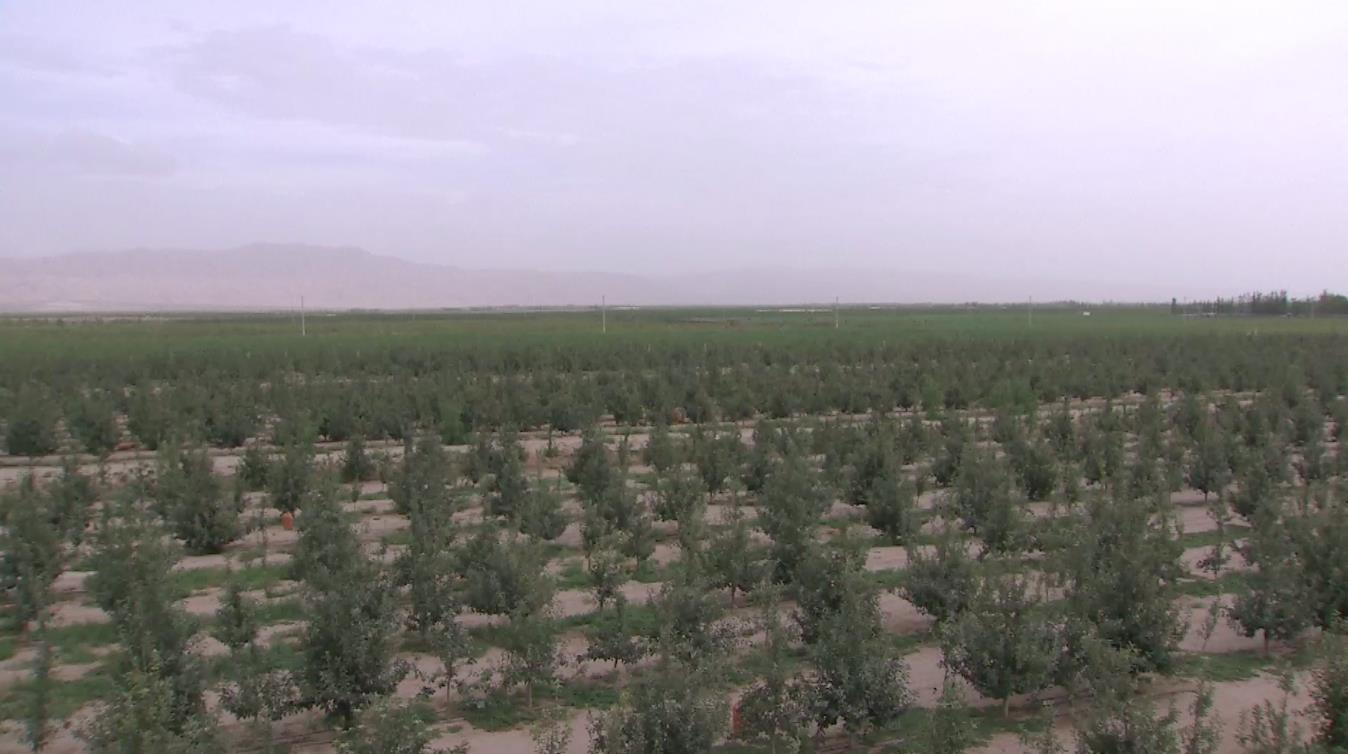
A partial of Wang Xiaoping's apple orchard. /CGTN Photo
Wang said through e-commerce, their products have been selling in other cities like Beijing, Shanghai and Guangzhou, and the company plans to take e-commerce training at the end of this year to sell their products even more widely. Over the next few years, the annual net income per household is expected to be at least around 42,000 to 70,000 U.S. dollars.

Foreign journalists visit Wang's fruit farm. /CGTN Photo
Because hail was a threat to the local fruit cultivation, the government also set up special stations to help them artificially influence the rainfall and prevent hail from damaging the fruits, Wang added.
Kazhyken Saltanat, deputy chief editor of Tenge Observer News in Kazakhstan, who also visited the plantation, said that Aksu's greenery and fruit trees are the result of the efforts of generations of people. They are not only creating an oasis, but also improving the income of local farmers.
Meanwhile, as the largest urban garden in southern Xinjiang, Aksu National Wetland Park was set up in 2017 over 120 hectares, aiming to complete the whole natural ecosystem by conserving and purifying water sources. It's a theme park of tourism and ecology, with an area of 230,000 square meters being used for growing more than 40 varieties of flowers. Lots of flowers such as vervain, lythrum salicaria and salvia japonica have been planted in Aksu for the first time.
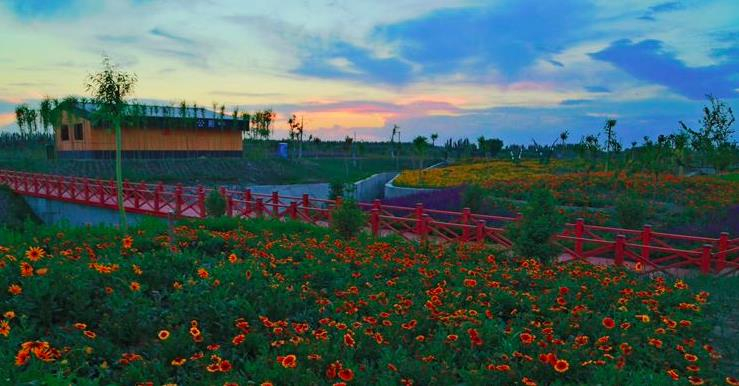
A corner of Aksu National Wetland Park. /CGTN Photo
As the old saying goes, "Lucid waters and lush mountains are invaluable assets." Only on the basis of green and sustainable development can China achieve its great aims for society and the economy.

Copyright © 2018 CGTN. Beijing ICP prepared NO.16065310-3
Copyright © 2018 CGTN. Beijing ICP prepared NO.16065310-3